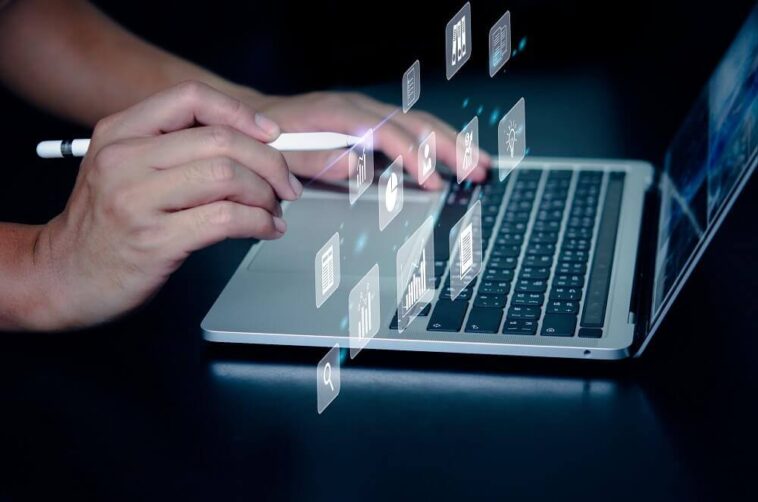The Software of legal software’s will change the legal industry in a big way. Although there has been great innovation in this sector, such as artificial intelligence replacing paralegals and document automation, the future of software will simplify the legal field. What does the future look like for this profession? The legal field will look more like Silicon Valley, with a heavy emphasis on software that streamlines the legal process.
We’re hoping to achieve two fundamental things: “Legal Software that makes you SANE!” and a ‘service’ that offers “. Legal software not just for attorneys, but also for law firms.
Section: Let’s face it: Software will soon become so sophisticated and user-friendly that many lawyers will lose their jobs.
Ask a room full of lawyers if the software will one day replace them and you’d probably get an emphatic “yes.” Ask the same group whether they think that’s a bad thing and you’d most likely get an even more emphatic “no.” The truth of the matter is that legal technology hasn’t seen nearly the rate of innovation that medical technology has. While we may be limited to only working with expert witnesses on our paralegals, there are a lot of areas where digital is really transforming both the practice and delivery of law.
Do you spend hours searching for the one piece of information you need to complete a 6000-word brief? Don’t you wish some trusty application would just collect all this information and spit out legal advice based on your situation? Oh wait, I’m pretty sure these apps already exist. They’re called paralegals.
Section: While most of the legal innovations discussed in this article are aimed at helping lawyers, the main beneficiaries will be their clients.
Lawyers are not known for their innovation. The legal profession has been criticized for decades for being slow to adopt new technologies, with some critics all but accusing lawyers of deliberately impeding change to protect Software of legal software’s established ways of doing business. But that was then. Today, a great deal of effort is going into fixing the technological weaknesses in the legal field – and not just in law offices, but in law schools too.
The legal field as a whole is struggling for survival. The rise of online alternative dispute resolution (ADR) systems has led to a decrease in cases that need to end up in court and law firms are being replaced by tech startups in the world of research, document management, and the legal drafting process.
Section: The basic structure of legal software hasn’t changed much since the advent of computers.
When it comes to legal software, the basic structure hasn’t changed much since the advent of computers. Law firms still use paper and pen to draft client contracts, usually producing multiple versions of each document that are then secured in manila folders. They also still rely on several big-name software packages that were developed 20 years ago. But a lot has changed in 20 years – especially the technology that lawyers and law firms use. If legal software is going to survive and thrive, we need to update it now.
All legal software products Software of legal software’s need to do basically the same thing. In fact, most legal software couldn’t be simpler to understand. Lawyers using computer software are responsible for four things:
Section: While some people are worried about ‘Big Brother’ abuses of data mining, others are touting its life-saving and job-creating potential.
We’ve all known about the NSA for years now. But do you ever wonder what they do with all of this data? There are many ways in which the employment rate could be improved by using data mining to improve output and make workers more efficient. Data mining isn’t always a bad thing; it is just how it is used that differentiates it from other activities — like widespread spying and monitoring.
Despite the privacy concerns that have arisen recently, there are two sides to this story. On one side, data mining is feared for possible “Big Brother” uses that could jeopardize our civil liberties and freedoms. On the other hand, it’s being praised as an essential tool to fight crime and improve healthcare.
Section: One common complaint about data mining is that it turns personal private information into public property.
How does the data mining process work and what is the relationship between data mining and online privacy? I’m glad you asked. Data mining is the process of obtaining useful information from large amounts of data usually in a database. Also, data mining helps automate and speed up processes in which an analyst might manually inspect each record individually.
The analysis can take on many forms such as looking for relationships, associations, trends, patterns, and outliers. Wikipedia has a good way of describing it:
Data mining is the non-trivial extraction of the pattern (data) from large databases using special purpose hardware and/or software tools.” Data mining is very similar to what Google does when they suggest relevant keywords to add to your search box when you start a new search on their site.
In fact, Google could be considered a data miner – they provide their services at no cost because they gain a profit via advertising which is driven by data mining your internet searches. Section: One common complaint about Software of legal software’s data mining is that it turns personal private information into public property.
Section: Some academics suggest that we’re on our way to a world where there’s one ‘mega-pile’ of data, containing all data known to humankind.
So, there will eventually be one big pile of data for everyone to access. That’s much better than having data housed by third parties, according to [Schmidt/ Schmidt/Schmidt].”The last company that will hold your data will be…Google,” he says in an interview with the Financial Times .
The concept of the ‘data avalanche’ is a scenario in which all data will be collected and stored. Also known as datasets like “worldwide-web”, or “stored-web”, the avalanche is composed of growing volumes of interconnected data.
Section: When it comes to various aspects of law, some companies like Google have an edge over others because they’ve had more experience with them.
Being a lawyer is tough, and when you sit down to write one, you have to first and foremost be on your toes. Whether it’s for a complicated contract or a short contract for the loan of your neighbor’s hair comb, you need to make sure that everything—and I mean, EVERYTHING—is legal.
When it comes to various aspects of law, some companies like Google have an edge over others because they’ve had more experience with them. For example, Google launched a new “Google Fiber for Communities” initiative which is the next-generation fiber optic network that delivers speeds up to a gigabit per second.
Lawmakers in many states (such as Missouri and Pennsylvania) and within certain virtual communities (for example Kansas City) are crafting regulations that would facilitate the Google Fiber rollout, because state and local leaders know that faster networks enable smart cities, which in turn enable a smarter workforce – now and in the future.
It’s hard to imagine Google being at the center of a legal dispute, but that’s exactly where the search engine giant is: in the middle of a controversy surrounding the collection of personal data by Apple.
Software of legal software’s: In the book The End of Lawyers? Richard Susskind argues that the days of having a human lawyer are coming to an end.
You’ve heard of the book the end of the rain, right? And the End of Retirement (I don’t know who decided that was a good idea, but still). Well, get ready for the end of lawyers. If you want to hear more about The End of Lawyers, Software of legal software’s check out this interview…
The days of having a human lawyer are coming to an end. Okay, you might be thinking (and I might be daydreaming), “What about all the legal matters out there that can’t be handled by software? What about the human element?” Well, I’ve got good news for you.
When it comes to the law, not all companies are created equal. This is especially true when you look at companies like Facebook and Google which are used to dealing with complicated legal issues because of their “internet” nature. These two organizations have had more experience dealing with a wide variety of laws than organizations like airlines and banks. Why? Because these two companies started before any of the other companies mentioned. How and why did I come upon this conclusion?
Section: Susskind predicts that as AI improves, many jobs will be lost as a result; this is what he calls ‘the commoditization
Mario Susskind might be on to something with his statement that, “computers are going to get a lot smarter over time and ultimately a lot more powerful. And if we allow them to automate for us, we’re going to find that a lot of that work is also going to be automated.”
In the last fifteen years, the world’s population of smartphones has grown from several hundred thousand to more than six billion. The vast majority of us now have these pocket-sized supercomputers, yet not many of us are aware that we are already living in “the Age of AI.”






GIPHY App Key not set. Please check settings